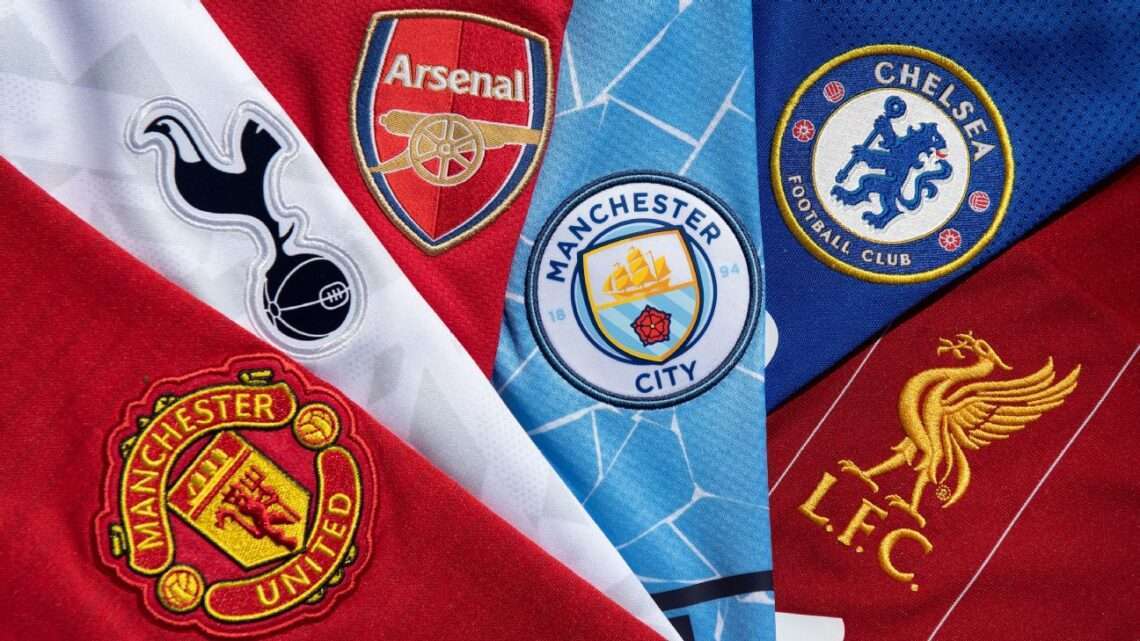
Who Rules the Roost? The Dynamics of the ‘Big 6’ in the Premier League
The “Big 6” in the English Premier League (EPL) refers to the six clubs that have traditionally dominated the league in terms of resources, performances, and titles over the past two decades. These clubs are:
“Big 6” Clubs in EPL
- Manchester United:
- One of the most successful clubs in English football history, they are known for their global fanbase, extensive trophy cabinet, numerous Premier League titles, and rich tradition, including the ‘Busby Babes’ era and the Sir Alex Ferguson years.
- Manchester City:
- Since being taken over by the Abu Dhabi United Group in 2008, Manchester City has transformed into a powerhouse. It has won multiple Premier League titles, invested heavily in infrastructure and players, and become synonymous with modern football’s financial power plays.
- Liverpool:
- With a storied history, Liverpool has been a powerhouse in English football, particularly known for the Shankly, Paisley, and more recently, the Jürgen Klopp era, marked by a high-pressing game, passionate fanbase, and a resurgence in Premier League and European competition success.
- Arsenal:
- Known for its attractive football under managers like Arsène Wenger, Arsenal has a reputation for its youth academy (often referred to as the ‘Arsenal way’) and has been a consistent top-four finisher for many years, though their last league title was in 2004.
- Chelsea:
- Since Roman Abramovich‘s takeover in 2003, Chelsea has become a symbol of the new money in football, frequently challenging for titles and investing heavily in players. Their success has continued under various managers, with a notable resurgence under Thomas Tuchel and then Graham Potter.
- Tottenham Hotspur:
- While not as successful in terms of winning the Premier League as others on this list, Tottenham has been a consistent presence in the top echelons, known for their development of a state-of-the-art stadium and for competing without the financial muscle of their rivals, particularly under Mauricio Pochettino and later, José Mourinho.
The term “Big 6” isn’t just about trophies but also represents the financial clout, global brand recognition, and consistent qualification for European competitions, especially the lucrative UEFA Champions League. These clubs often have the largest budgets for player transfers and wages, leading to a cycle where they can typically attract the best talent, which in turn helps them to maintain their dominance.
Trending Now!!:
Breaking Into “The Big 6”
Breaking into the “Big 6” in the English Premier League (EPL) involves a combination of strategic planning, financial investment, sporting excellence, and often, a bit of luck. Here’s what it typically takes:
- Financial Investment:
- Owner Investment: Clubs need backing from wealthy owners or investors who are willing to spend on infrastructure, players, and staff.
- Revenue Generation: Maximizing revenue through matchday income, broadcasting rights, sponsorships, and merchandise.
- Quality Recruitment:
- Scouting and Transfers: Effective scouting networks to find talent that can either develop into stars or are already at a high level. This includes not just buying star players but also finding undervalued talents or free agents.
- Youth Academy: Developing homegrown talent which not only saves money in the long run but also enhances team cohesion.
- Managerial Expertise:
- Tactical Innovation: Managers who can adapt to the tactical evolution of football, employing strategies that can compete with or outsmart the established clubs.
- Philosophy and Identity: Establishing a clear playing style that can attract players and fans alike.
- Sporting Infrastructure:
- Training Facilities: Modern, state-of-the-art facilities for player development and health.
- Stadium: A good stadium can generate revenue but also create a home advantage with atmosphere.
- Strategic Planning:
- Long-Term Vision: Consistent strategies that look beyond one or two seasons. This might include focusing on domestic competitions, European ambitions, or a blend of both.
- Squad Building: Balancing the team with a mix of experienced players and young talent, ensuring squad depth to handle multiple fronts like the Premier League, cup competitions, and potentially European tournaments.
- Cultural and Community Integration:
- Fan Engagement: Keeping the fan base engaged and growing, which can influence sponsorship deals and matchday revenue.
- Community Involvement: Clubs that are well-integrated with their community often receive more support, which can be intangible but crucial.
- Performance Metrics:
- Consistency: Regularly finishing in higher positions in the league table, which often leads to regular European football qualification, further enhancing the club’s profile and finances.
- Cup Success: Winning or reaching finals in domestic cups can boost morale, finances, and reputation.
- Marketing and Brand Building:
- Global Presence: Building a brand that resonates globally can attract better sponsorships and more commercial deals, thus increasing revenue.
- Adaptability and Innovation:
- Technological Adoption: Using data analytics, sports science, and technology for performance analysis, injury prevention, and player recruitment.
- Luck and Timing:
- Sometimes, external factors like managerial changes at rival clubs, player injuries, or unexpected team performances can create opportunities for a club to rise.
Recent discussions and trends on platforms suggest that while financial firepower remains crucial, tactical nous, player recruitment strategies focusing on squad depth rather than just stars, and a philosophy that resonates with modern football’s demands (like high-pressing, possession-based play, or counter-attacking efficiency) are becoming increasingly important.
Clubs like Brighton, Brentford, and even Newcastle (with its new ownership) illustrate that with the right strategy, even teams outside the traditional “Big 6” can challenge or aspire to join them, showing that the route to the top is not just about money but smart management and football philosophy.


